Good Grief: A Daniel Levy State Of Mind
This is #CineFile, where our critic Rahul Desai goes beyond the obvious takes, to dissect movies and shows that are in the news. Here: Dan Levy's Good Grief.
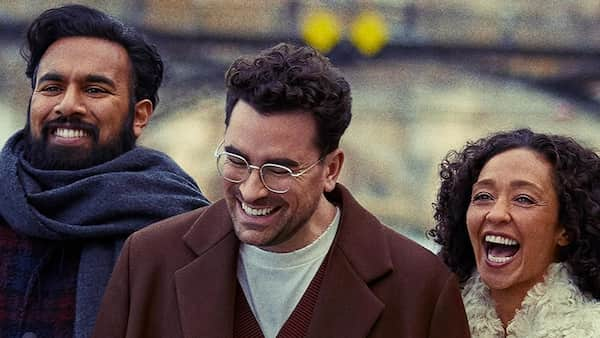
Last Updated: 04.19 PM, Jan 06, 2024
THE word ‘grief’ is never once mentioned in Good Grief, a film about a 38-year-old man (Daniel Levy) struggling to cope with the death of his husband (Luke Evans). Words like pain, loss, sadness, void and hurt are used as emotional surrogates, like familiar sounds poking around in the dark to acquire sensory meaning. You can see why. Grief is supposed to be an all-encompassing term, one that can mean everything and nothing at once. It’s a soothing linguistic crutch, but it also reduces the fractured soul to any single feeling.
And the grief of Marc, the protagonist, is plural and complicated. When he discovers that his late husband, Oliver, was shacking up with a younger lover in Paris, Marc finds himself at odds with his own emptiness. There is confusion, but there is also heartbreak at not being able to muster up the requisite rage. So he uses resentment to escape his grief — he takes his two best friends Sophie (Ruth Negga) and Thomas (Himesh Patel) to Paris for an expensive weekend getaway and lives in Oliver’s secret love nest. He uses attachment to defy his grief — he meets a kind French man and spends the night walking with him. He uses memories to question his grief — he wonders why he used his marriage as a ‘rebound’ from the death of his mother. He uses regret to deflect his grief — Oliver may not have been the purest partner, and Marc wonders if he is now worth the anguish. But Marc ultimately realises that he can’t run away from an inseparable part of himself. That’s all there is to most stories about loving and losing. It’s about coming to terms with the futility of healing. And it’s about moving forward without having to leave behind.
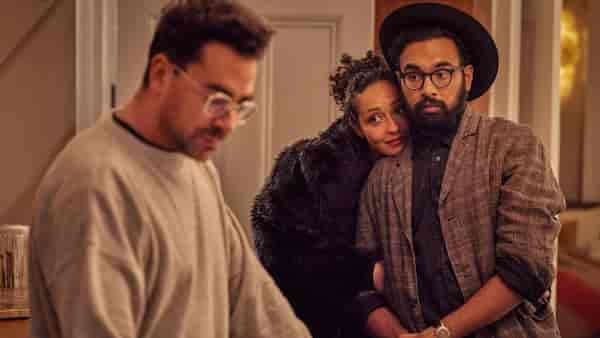
This is Daniel Levy’s first directorial venture since the stupendous success of Schitt’s Creek. In a way, it seems to share a spiritual universe with the famously feel-good show. Despite the theme, there's a utopianism about the manner in which unprepared adults deal with difficult situations. (Imagine David embarking on a getaway with Stevie and Alexis to deal with the untimely death of Patrick. Or wait, don't imagine that. It hurts). But the idealism is familiar. For instance, Sophie and Thomas are almost the world's most perfect friends — funny, empathetic, silly, self-deprecatory, warm and fully committed to nursing Marc back to some semblance of normal. Thomas is an ex, but he doesn't bat an eyelid before moving into Marc’s house for the year. Anything for him. Sophie is a hot mess, but her broken life revolves around Marc because he needs them. Whatever it takes. Marc needs to be fixed. Reality can wait.
Knowing the legacy of Schitt’s Creek is also understanding the design of Good Grief. That the Parisian weekend slowly unravels is a testament to Levy’s self-reflexive storytelling. It starts off all giddy and fuzzy. Marc hides his marital secret, and strives to thank his friends with an all-expenses-paid trip. Everyone is calm and kind and amusing. But when the cracks come, it’s as though Levy is challenging his own gaze. He reveals what we suspected all along: that such utopianism is simply not sustainable. Tensions emerge because both Thomas and Sophie start to buckle under the pressure of neglecting their own lives. Their selflessness finally undoes them. Sophie is jobless and single after scaring away yet another Nice Guy. Her choices are more reckless than ever. Thomas is tired of being the safe one and not The One. They've been grieving the demise of their own identities in order to be there for Marc. At one point, when Sophie says something honest and ugly, Marc says it's fine, only for her to lose her patience and ask him to let her confess to her own limitations. Enough of the niceness. Enough of the unconditionality. They stop pretending to be sweet and sorted and, like human therapy sessions, strip themselves down to their bare essentials. It's a subversive swing, especially in the context of the film-maker’s career.
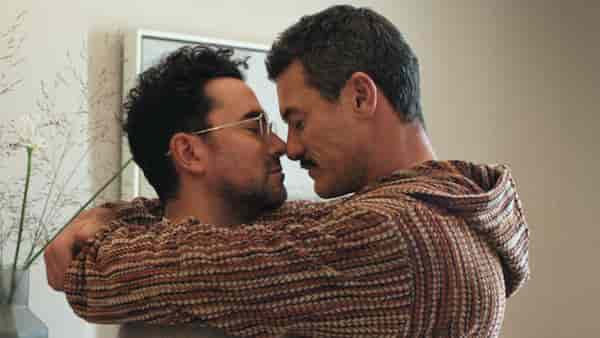
The result is a rare and perceptive look at how grief triggers expectations, and expectations don't arrive without baggage. I recently fell out with someone because he said that he was ‘afraid’ of being there for me when I lost my best friend. He was afraid of altering his life for mine, and fretted about not being enough. Because he's always had a hyper-masculine shit-happens attitude, he expected others to adopt the same approach and not fall back on shoulders to cry on. The pragmatism is admirable (often mistaken for mental strength) but cruel. So very cruel. Levy manages to explore a middle ground of sorts, evoking a world in which people do ridiculously generous things for their loved ones. But he also admits that such acts are not feasible. More so, they're not healthy. Dependence can be the enemy of agency. And he does it all with trademark elegance and dignity.
There's something about seeing dramatic scenes unfold in the most un-dramatic ways. What is it about Ferris wheels and vulnerable adults navigating hard truths? After Avinash Arun's Hindi-language Three of Us, Good Grief is the second film in recent memory to use the wheel for its most disarming moment. Maybe the clarity comes from being suspended between the sky and the ground, between heaven and earth. Or maybe everyone's just scared of heights.
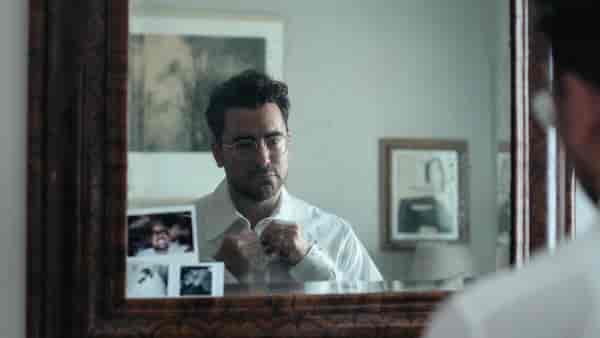
One can accuse Good Grief of being too…handsome. Of being an aesthetic. Of being too lyrical and wordy. Paris looks like a waking dream, and London seems to be in the perpetual throes of mid-December magic hour. The whispery score might sound like grief-bait. Lines like “to avoid sadness is to avoid love” (from a wealth manager no less) might even sound too manicured and timely. But the film has reason to be so. It is populated with artists and art. Marc is a painter who gave up his passion to work for his celebrity-writer husband. Oliver had a way with words and narratives. We see the perfectly patterned spaces and feelings through their eyes. Thomas is a museum curator, and Sophie works in the film industry. It's not so much Levy's style as it is the lens — the inherent nature — of his artful characters. By the same yardstick, fashion designer Tom Ford made A Single Man look like the cinematic embodiment of a flawless waistcoat. The grief in his film was so visually striking that even the friendship — Julianne Moore aches for the man who lost his husband — felt rooted in a type of curated chaos. The colours, the violin, the frame rates. Like, say, the custom-tailored version of a Wong Kar Wai frame.
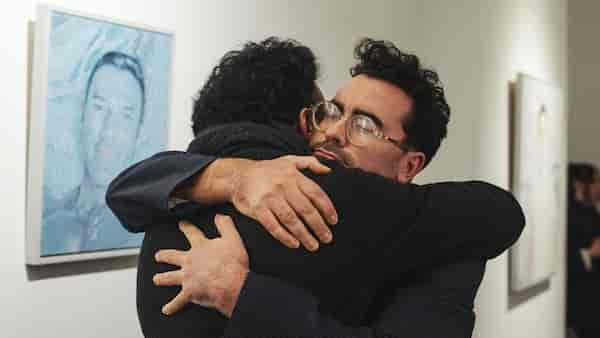
Good Grief has similar motifs, and therefore doesn't hold back from having a ‘gait’. But it's not too good-looking to be true. The surface, in fact, invites us to notice the tremors beneath. The cobblestones aren't easy to walk on. The Christmases aren't easy to celebrate. The loneliness isn't easy to identify. The French aren't easy to unlove. The betrayals aren't easy to forget. And the endings aren't easy to interpret as new beginnings. After all, grief is good because it is the toll-free bridge between joy and despair.

 Premium
Premium